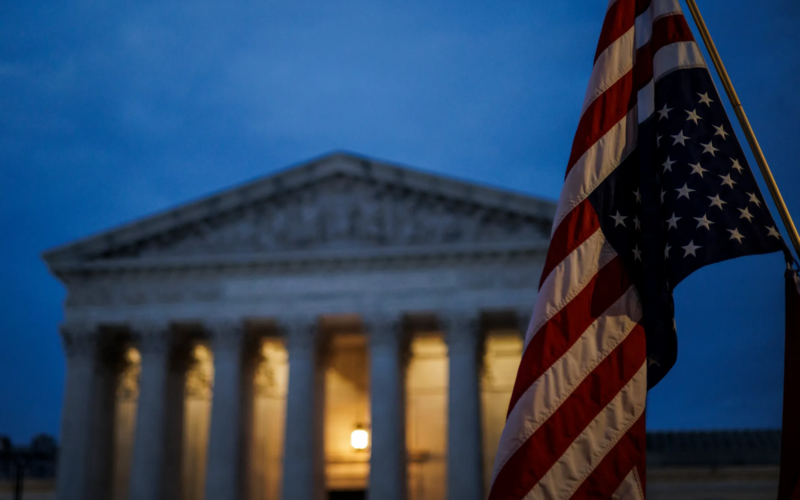In a landmark decision, the U.S. Court of Appeals for the Fifth Circuit has significantly narrowed the scope of the Voting Rights Act of 1965, ruling that different minority groups cannot jointly claim that their voting power has been diluted by political redistricting. The ruling, which reverses nearly four decades of legal precedent, was handed down in a 12-to-6 decision by the full court on Thursday.
This ruling has immediate implications for Texas, Louisiana, and Mississippi—the states under the jurisdiction of the Fifth Circuit—but could also set a precedent with national repercussions. The case at the center of this decision involved Galveston County, Texas, where recent redistricting efforts reduced the combined Black and Hispanic electorate from a majority to just 38 percent in one district. A lawsuit had argued that this redrawing of boundaries violated Section Two of the Voting Rights Act, which prohibits practices that dilute minority voting power.
Initially, both a lower court and a three-judge panel from the Fifth Circuit found the redistricting efforts to be a clear violation of the law. However, the full court disagreed, asserting that the Voting Rights Act does not explicitly allow minority groups to “combine forces” in such claims. The 12 judges who formed the majority were all appointed by Republican presidents, while five of the six dissenting judges were appointed by Democrats.
This ruling marks a significant shift in how the Voting Rights Act is interpreted and enforced. For decades, the Act has served as a powerful tool for protecting the voting rights of minority groups, ensuring that redistricting does not dilute their electoral influence. By ruling that minority groups cannot band together to challenge discriminatory maps, the court has placed a new limitation on the Act’s reach.
The implications of this decision are profound. As the nation continues to grapple with issues of representation and voter suppression, the Fifth Circuit’s ruling could embolden further redistricting efforts that undermine the collective power of minority voters. Moreover, this decision may be appealed to the Supreme Court, potentially setting the stage for an even broader reevaluation of the Voting Rights Act at the national level.
For conservatives, this ruling represents a victory for those who believe in a more literal and limited interpretation of the law. It aligns with a broader judicial trend toward reining in what some see as judicial overreach in the application of civil rights legislation. By insisting that the Voting Rights Act should be interpreted as written, without extending its protections beyond the explicit language of the law, the court has underscored the importance of legislative clarity and restraint.
Critics of the ruling, however, argue that it undermines the original intent of the Voting Rights Act, which was designed to address the realities of racial discrimination in the electoral process. They fear that this decision could weaken the protections afforded to minority voters and make it easier for discriminatory practices to go unchecked.
As the case potentially moves toward the Supreme Court, it will likely become a focal point in the ongoing debate over the future of voting rights in America. The Fifth Circuit’s ruling is a reminder of the deep divisions that continue to shape the nation’s legal landscape, particularly on issues as fundamental as the right to vote.








